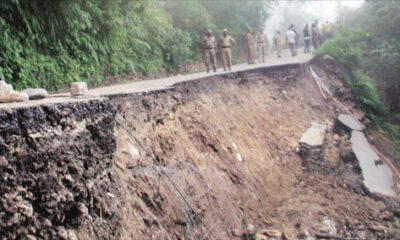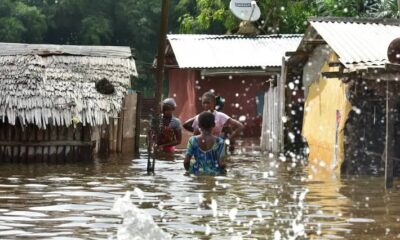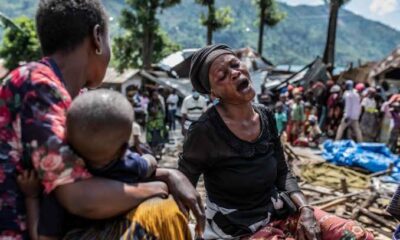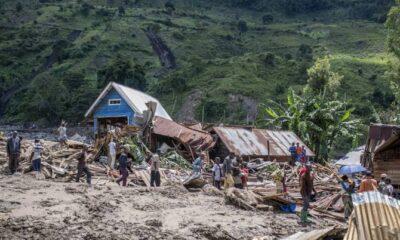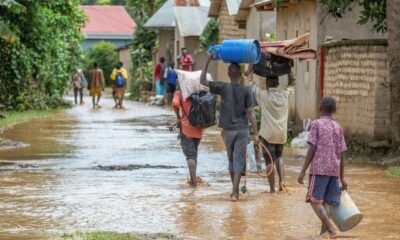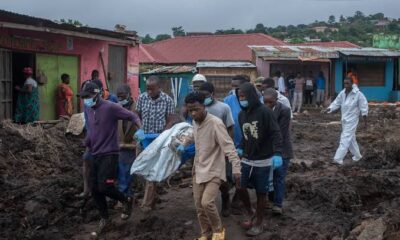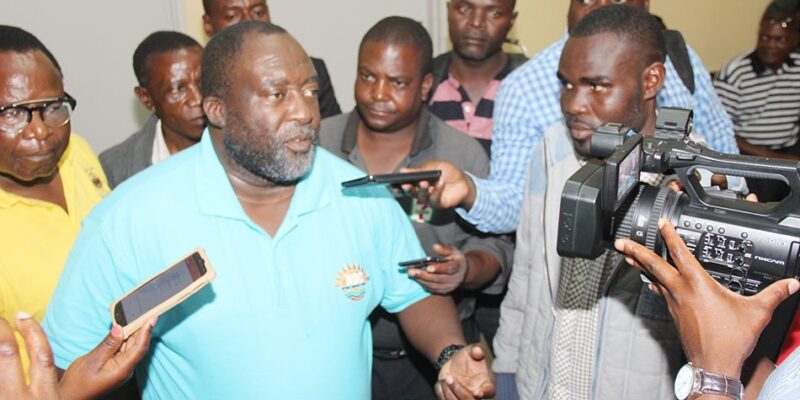The year 2023 was indeed one that played host to a variety of disasters on the African continent, with some of them the worst the respective countries had seen in decades.
The year saw many African countries witnessing natural catastrophes such as earthquakes, wildfires, cyclones, flooding and landslides which led to the loss of thousands of lives and other devastating consequences.
Africanewswatch.com takes a look at the most devastating incidents that shook the African continent in 2023.
1. Moroccan Earthquake
On September 8, a magnitude 6.8 earthquake struck the tourist city of Marrakech, 45 miles southwest of Morocco, leaving over 2,946 residents dead while another 5,674 were injured, and destroyed over 50,000 homes.
The country’s National Institute of Geophysics described the quake as the strongest ever recorded in the region in its history, with the devastating force destroying huge swathes of the beautiful city.
Authorities also estimate that it will take billions of dollars to rebuild the city which is one of Morocco’s biggest tourist destinations.
2. Libya’s Storm Daniel
On September 10, the Mediterranean coastal city of Derna in Libya was struck by tropical Storm Daniel after torrential rainstorm which also swept across several other cities including, Benghazi, Al-Bayda, Al-Marj, and Soussa.
The floods which lasted for several weeks, according to the United Nations, were unprecedented in the Maghreb region and even globally in the 21st century.
Storm Daniel also brought with it torrential rain and considerable flooding which burst two of the city’s dams, killing more than 11,000 people and destroying about 150,000 buildings.
According to reports, a quarter of the Derna city’s neighborhoods was wiped off the map as the disastrous floods which ravaged the country were said to have affected over 100,000 people living in the city.
3. Floods in the DRC
In early May, tortential rainfall struck the eastern region of the Democratic Republic of the Congo, causing flash flooding and mudslides which left more than 438 people killed and thousands more missing or homeless.
The United Nations Humanitarian Agency said the unprecedented flooding in the region was something that had not been witnessed in decades. Rescue operations were hindered by the presence of the deadly M23 militia that had occupied the region for years.
4. Cyclone Freddy
In the year in review, Cyclone Freddy swept through Mozambique, Malawi, Zimbabwe and the island nations of Madagascar and Mauritius, leaving behind thousands of deaths and destruction of property valued at billions of dollars.
Cyclone Freddy first made a landfall in Mozambique as a Category 2 storm with 110 mph winds, causing floods that killed 1,434 people, while 184,000 people were displaced.
From Mozambique, the Cyclone landed in Malawi, leaving 679 dead, before hitting Madagascar with 17, Mozambique 198, Zimbabwe 2, and Mauritius 1.
Freddy thus became known as the second-deadliest tropical cyclone in the entire Southern Hemisphere, after an unnamed 1973 cyclone in Indonesia which records indicate killed 1,650 people.
5. DR Congo and Rwanda landslides
DR Congo and neighbouring Rwanda were once again the epicenter of another devastating landslide and flooding which killed at least 574 people and displaced thousands as heavy rains pounded the two neighbouring nations in late April and early May.
Flooding and landslides led to destruction of homes in the DRC capital of Kinshasa, and in villages in the eastern parts of the country.
In Rwanda, the landslides that accompanied the heavy flooding pummeled northern and western Rwanda, destroying 5,000 homes and killing at least 129 persons.
6. Wildfires in Algeria, Tunisia
The two north African countries of Algeria and Tunisia were not left out of the natural disasters that hit Africa in 2023 as wildfires raged across the two countries, leaving several people dead.
In Algeria, the blistering heatwave killed more than 34 people including 10 soldiers, and forced mass evacuations.
As temperatures hit 48 degrees Celsius (118 Fahrenheit) in parts of the North African country, 97 blazes ripped across 16 provinces, fanned by strong winds.
The fires raged through residential areas, forcing the interior ministry to evacuate 1,500 people from the Bejaia, Bouira and Jijel provinces east of the capital, Algiers.
In neighbouring Tunisia, temperatures soared to nearly 50 degrees Celsius, leading to wildfires that raged through a pine forest near the border with Algeria, with authorities stating that 470 hectares of forest were burned.
At least 300 people were evacuated by sea and yland from the village of Melloula, according to the national guard.
7. Tanzanian Landslides
In early December, at least 47 people were confirmed killed and 85 others injured in landslides caused by flooding in northern Tanzania.
According to District Commissioner, Janeth Mayanja, the town of Katesh, some 300km north of the capital Dodoma, was most affected by the flooding.
The UN, in a statement, attributed the incident to an unprecedented drought which hit East Africa following torrential rain and flooding linked to the El Nino weather phenomenon.
The global body describes El Nino as a naturally occurring weather pattern that originates in the Pacific Ocean and drives increased heat worldwide, bringing drought to some areas and heavy rains elsewhere.
The downpours also displaced more than a million people in Somalia and left hundreds dead.
8. Kenyan Floods
It was also the turn of Kenya to be hit by flood which left over 40 people dead while more than as 58,000 persons were displaced from their homes, according to reports from humanitarian organisations.
In an interview, Secretary General of the Kenya Red Cross Society, Dr Ahmed Idris, said that at least 19 of the country’s 47 counties were affected by flooding which began in late October 2023.
“As many as 46 people have now lost their lives as a result of the heavy rains and flooding,” Idris had said.
“Currently the worst affected areas are in the north of the country, in particular in Samburu, Wajir, Isiolo, Marsabit and Mandera counties. However the recent overflow of the Tana River has affected areas in the east of the country including Tana River and Garissa counties,” Idris added.
9. Cameroonian Landslides
In early October, at least 30 people were reported dead after heavy rains in Yaoundé, the capital of Cameroon, caused mudslides and flooding in hillside communities in Mbankolo district on the outskirts of the city.
Cameroon’s Minister of Territorial Administration (MINAT), Atanga Nji Paul, who visited the affected area, confirmed that 30 people had lost their lives in the tragedy and more were feared missing, while rescue teams were searching for victims trapped underground.
Around 50 people were reported injured with at least 30 homes destroyed.
10. Zambia Mine Collapse
In early December, over 30 miners were reportedly trapped when a Copper mine collapsed in the Chingola region, about 400 kilometers (250 miles) north of Lusaka, the capital of Zambia.
According to Home Affairs Minister, Jack Mwiimbu, who briefed the parliament on the incident, the region is known for illegal open-cast digging for copper.
“May I just inform the nation that we have a tragedy brewing in Chingola,” the minster had told parliament.
“We have more than 30 people under the rubble in a makeshift mine,” he added.
After days of intense search operations involving rescue workers, including military personnel and others from large-scale mining companies, about 12 bodies were recovered from the rubble.

 Metro1 day ago
Metro1 day ago
 Musings From Abroad1 day ago
Musings From Abroad1 day ago
 Metro1 day ago
Metro1 day ago
 Sports1 day ago
Sports1 day ago


